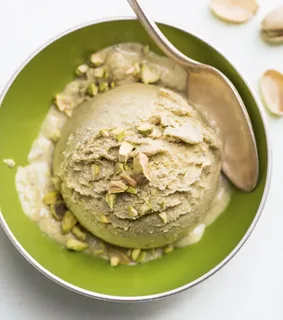Introduction
In the realm of fermented beverages, kefir and kombucha stand out as popular choices renowned for their potential health benefits. Both beverages are lauded for their probiotic content, but they differ in terms of taste, preparation, and nutritional composition. In this comprehensive guide, we will delve into the world of kefir and kombucha, exploring their origins, health benefits, potential drawbacks, and how they compare to each other. By understanding the unique properties of kefir and kombucha, you can make an informed decision about which fermented beverage may better suit your health and taste preferences.
Understanding Kefir
Origins and History
Introduction to kefir, a fermented milk drink believed to have originated in the Caucasus Mountains, with a rich history dating back centuries.
Production Process
Explanation of how kefir is made by fermenting milk with kefir grains, a symbiotic culture of bacteria and yeast (SCOBY), resulting in a tangy, slightly effervescent beverage.
Nutritional Composition
Analysis of kefir’s nutritional profile, highlighting its high protein, calcium, vitamin K2, and probiotic content, which may contribute to digestive health and immune function.
Exploring the Health Benefits of Kefir
Probiotic Support
Examination of how kefir’s diverse array of beneficial bacteria and yeast strains can help promote gut health, restore microbial balance, and alleviate digestive issues such as bloating and constipation.
Bone Health
Discussion of kefir’s potential role in supporting bone health and reducing the risk of osteoporosis due to its calcium and vitamin K2 content.
Immune Function
Overview of kefir’s immune-boosting properties, attributed to its probiotic content and potential modulation of the gut microbiota, which may help enhance immune response and reduce the risk of infections.
Understanding Kombucha
Origins and History
Introduction to kombucha, a fermented tea beverage believed to have originated in China over 2,000 years ago, with a rich cultural and medicinal history.
Fermentation Process
Explanation of how kombucha is made by fermenting sweetened tea with a SCOBY, resulting in a tangy, slightly acidic beverage with a hint of sweetness and effervescence.
Nutritional Composition
Analysis of kombucha’s nutritional profile, highlighting its low calorie, sugar, and alcohol content, as well as its potential antioxidant and probiotic content.
Exploring the Health Benefits of Kombucha
Probiotic Support
Examination of how kombucha’s probiotic content, derived from the fermentation process, may support gut health, improve digestion, and enhance nutrient absorption.
Antioxidant Properties
Discussion of kombucha’s potential antioxidant properties, attributed to compounds like polyphenols and organic acids, which may help reduce oxidative stress and inflammation in the body.
Detoxification
Overview of the claims surrounding kombucha’s detoxifying properties, including its potential to support liver function and aid in the elimination of toxins from the body.
Comparing Kefir and Kombucha
Taste and Flavor
Comparison of the taste and flavor profiles of kefir and kombucha, with kefir being tangy and slightly sour, and kombucha offering a sweet-tart flavor with a hint of acidity.
Nutritional Composition
Evaluation of the nutritional content of kefir and kombucha, including their respective levels of protein, vitamins, minerals, probiotics, and potential bioactive compounds.
Probiotic Diversity
Analysis of the probiotic diversity present in kefir and kombucha, considering the variety of bacterial and yeast strains present in each fermented beverage.
Preparation and Storage
Discussion of the differences in the preparation and storage of kefir and kombucha, including the fermentation process, brewing time, and shelf stability of each beverage.
Considerations and Potential Drawbacks
Sugar Content
Consideration of the sugar content in commercially available kefir and kombucha products, which may vary depending on factors such as flavorings and additives.
Alcohol Content
Awareness of the potential alcohol content in kombucha, resulting from the fermentation process, which may be of concern for individuals avoiding alcohol or those with certain health conditions.
Acidity
Discussion of the acidity of both kefir and kombucha, which may pose risks for individuals with acid reflux, GERD, or sensitive digestive systems.
FAQs
Is one better than the other in terms of health benefits?
Both kefir and kombucha offer unique health benefits due to their probiotic content and potential bioactive compounds. The choice between the two may depend on individual taste preferences, dietary restrictions, and health goals.
Can kefir and kombucha be consumed together?
Yes, kefir and kombucha can be consumed together as part of a balanced diet. However, it’s essential to monitor your intake of fermented beverages and consider factors such as sugar content and alcohol content when consuming them in combination.
Are kefir and kombucha suitable for everyone?
While kefir and kombucha are generally safe for most people, individuals with lactose intolerance, dairy allergies, or sensitivities to certain ingredients should exercise caution when consuming kefir. Similarly, those with compromised immune systems or specific health conditions should consult with a healthcare professional before consuming kombucha or other fermented foods.
Can kefir and kombucha help with weight loss?
While kefir and kombucha may support overall health and digestion, there is limited scientific evidence to suggest that they directly contribute to weight loss. Incorporating these fermented beverages into a balanced diet and active lifestyle may complement weight management efforts, but they should not be relied upon as standalone solutions for weight loss.
Are there any potential side effects of consuming kefir and kombucha?
While side effects are rare, some individuals may experience digestive discomfort, bloating, or allergic reactions when consuming kefir or kombucha, particularly if they have underlying health conditions or sensitivities to certain ingredients. It’s essential to listen to your body and adjust your consumption accordingly.
Can I make kefir and kombucha at home?
Yes, both kefir and kombucha can be made at home using starter cultures and simple fermentation techniques. However, it’s essential to follow proper hygiene and fermentation practices to ensure safety and quality. Alternatively, commercially available kefir and kombucha products are also widely available for purchase.
Conclusion
In the debate between kefir and kombucha, there is no clear winner, as both fermented beverages offer unique health benefits and flavor profiles. Whether you prefer the tangy creaminess of kefir or the effervescent sweetness of kombucha, incorporating these fermented beverages into your diet can be a delicious way to support gut health and overall well-being. By understanding the differences between kefir and kombucha and considering factors such as taste preferences, nutritional needs, and potential drawbacks, you can make an informed decision about which fermented beverage is right for you.
- A Comprehensive Review of the Best Delta 9 Gummies By Exhale Well - August 3, 2024
- Complete Review of the Best Delta-9 Gummies By Exhale Well - August 3, 2024
- Sweet Serenity: A Fun Review of Just Delta’s CBD + THC Gummies - August 3, 2024



